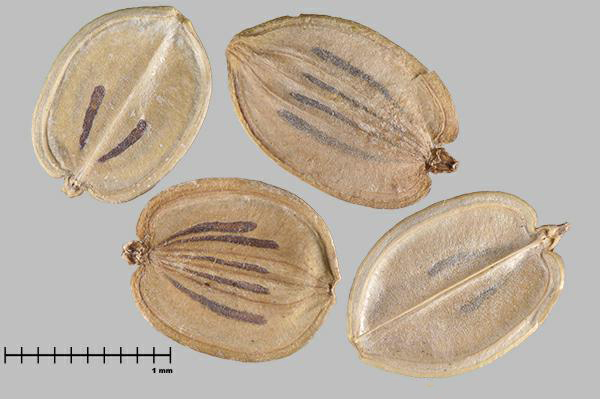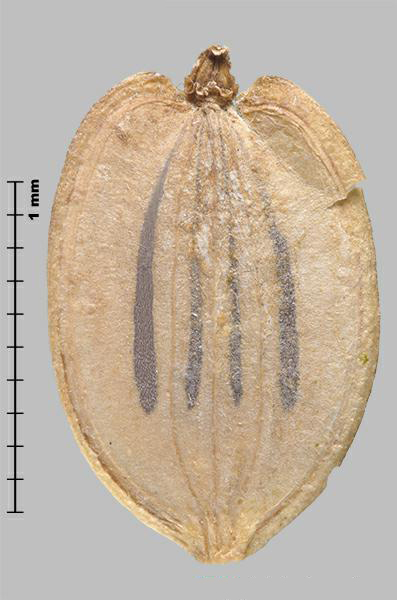Family
Apiaceae
Common Name
Wild parsnip
Regulation
Secondary Noxious, Class 3 in the Canadian Weed Seeds Order, 2016, 2016 under the Seeds Act.
Distribution
Canadian: Occurs in all Canadian provinces and territories except NU (Brouillet et al. 2016Footnote 1).
Worldwide: Native to Europe and western temperate Asia (USDA-ARS 2016Footnote 2). Naturalized in southern Africa, eastern Asia, Australia, New Zealand, North America and parts of South America (USDA-ARS 2016Footnote 2). It is widespread in the United States, except in the southeast (USDA-NRCS 2016Footnote 3).
Duration of life cycle
Biennial
Seed or fruit type
Schizocarp, divided into 2 mericarps
Identification features
Size
- Mericarp length: 3.5 - 4.5 mm
- Mericarp width: 4.5 - 6.0 mm
Shape
- Mericarp is oval-shaped, flattened
Surface Texture
- Mericarp is smooth, slightly wrinkled on dorsal side
Colour
- Mericarp is straw-yellow with reddish oil ducts
Other Features
- The dorsal side has four oil ducts that extend almost the length of the mericarp and three thin, arched ribs between them
- The ventral side of the mericarp has two oil ducts and no ribs
Habitat and Crop Association
Pastures, gardens, old fields, riverbanks, railway embankments, roadsides, field edges and disturbed areas (Cain et al. 2010Footnote 4, Darbyshire 2003Footnote 5).
General Information
Wild parsnip is believed to be naturalized from cultivation and possibly from seed contamination (Cain et al. 2010Footnote 4). Cultivated parsnip was first documented in Canada in 1612 and by the late-1700s, this species was found established in a wild state around historical European settlements in eastern Canada (Cain et al. 2010Footnote 4).
Similar species
Cow parsnip (Heracleum sphondylium subsp. montanum)
- The fruits of cow parsnip are a similar flat oval shape, straw yellow colour with reddish oil ducts as wild parsnip.
- Wild parsnip fruits can be up to half as long as cow parsnip. The oil ducts of cow parsnip fruits reach almost to the base, and the dorsal ribs are not as prominent as wild parsnip.
Photos
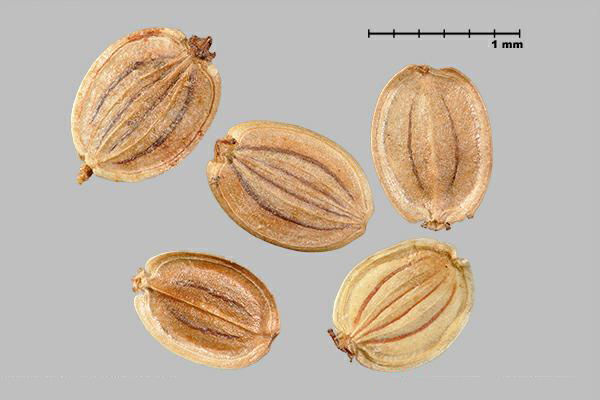
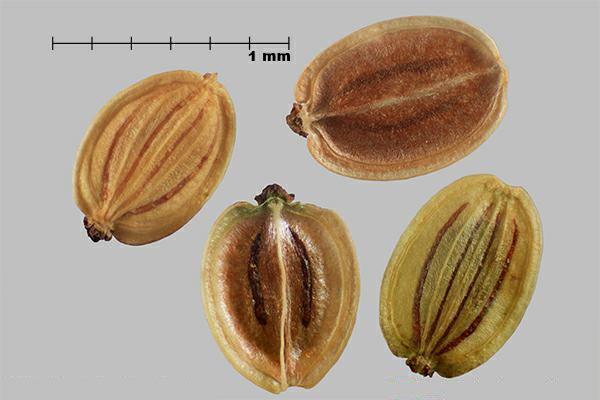
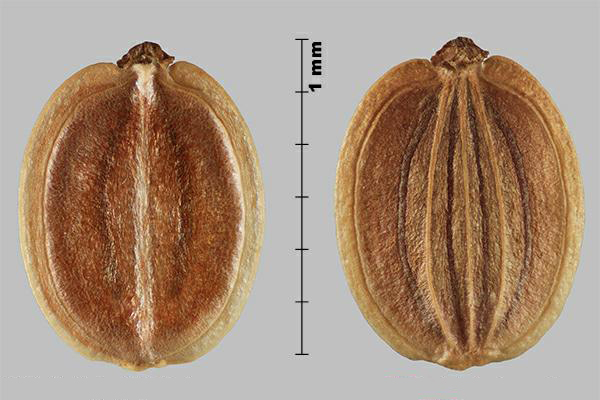
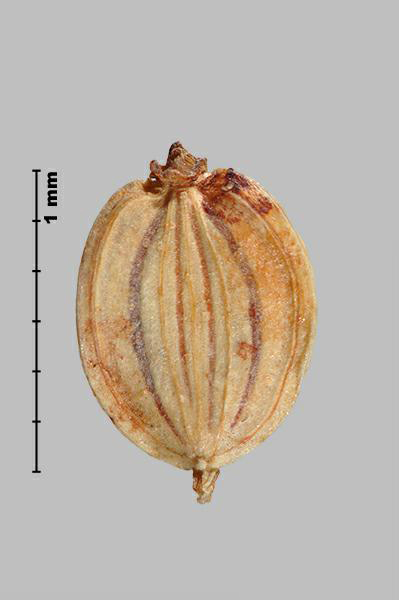
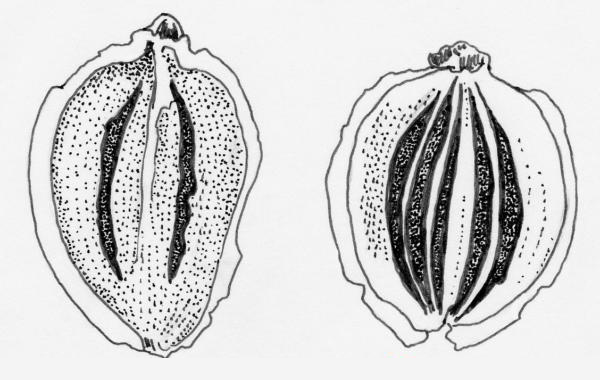
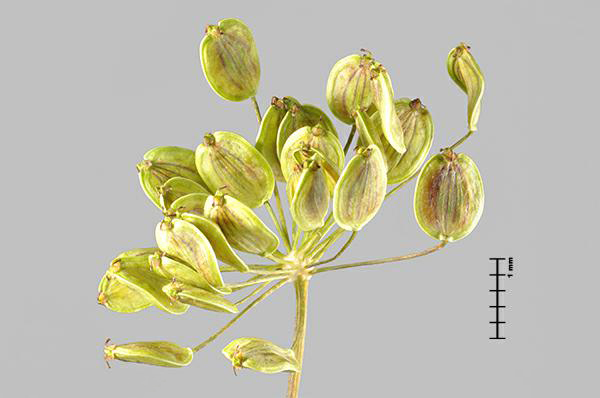
Similar species
